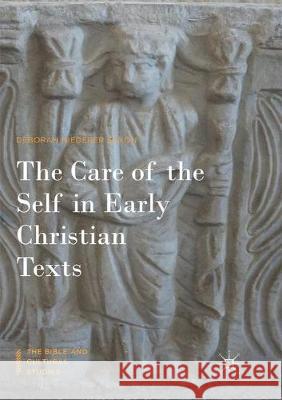The Care of the Self in Early Christian Texts » książka
topmenu
The Care of the Self in Early Christian Texts
ISBN-13: 9783319878614 / Angielski / Miękka / 2018 / 213 str.
Kategorie:
Kategorie BISAC:
Wydawca:
Palgrave MacMillan
Seria wydawnicza:
Język:
Angielski
ISBN-13:
9783319878614
Rok wydania:
2018
Wydanie:
Softcover Repri
Ilość stron:
213
Waga:
0.27 kg
Wymiary:
20.93 x 14.88 x 1.3
Oprawa:
Miękka
Wolumenów:
01











